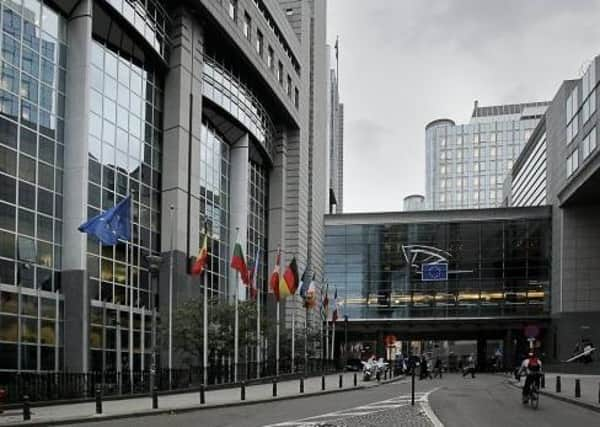UK farmers join united call for a trade agreement with the European Union


The NFU teamed up with AHDB (UK), DBV (Germany), DAFC (Denmark), LTO (Netherlands), IFA (Ireland), and FNSEA (France) to host a webinar to discuss the importance of trade for agri-food products, and the potential negative consequences of not reaching an agreement before the end of the transition period.
Speaking to an online audience of over 150 people, analysts from Rabobank and AHDB discussed the economic importance of a deal. While trade will never be 100 percent frictionless with the UK outside of the Single Market, a free trade agreement will have the lowest impact on prices and income.
Advertisement
Advertisement
If the UK were to trade on WTO terms, explained Sarah Baker of AHDB, farmers across the sectors would experience a drop in prices. The EU meanwhile risks losing an essential buyer of EU agri-food goods and would have to compete with third countries for market access in the UK.
Giving a political update on the situation and later fielding many questions from the audience, the UK’s Deputy Ambassador to the EU Katrina Williams, agreed that farmers in both the UK and EU do need to trade.
She stressed that the goal is to reach an agreement with zero tariffs and zero quotas, but that both sides need to recognise each other’s standards, on which the UK will not compromise.
Closing the event NFU president Minette Batters, concluded that a no deal scenario would be catastrophic for producers and consumers.
EU-UK trade negotiations: no progress
Advertisement
Advertisement
In a high-level meeting between UK Prime Minister Boris Johnson and European Commission President Ursula von der Leyen, European Council President Charles Michel and European Parliament President David Sassoli, both sides agreed that more needs to be done to reach an agreement.
In a joint statement released after the summit both sides said that new momentum was required and a timetable for talks shows meetings will take place every week during July and August.
Following the meeting, on Thursday last week MEPs voted through a document on “Recommendations on the negotiations for a new partnership with the United Kingdom of Great Britain and Northern Ireland”.
The report expresses the Parliament’s regret that, “no real progress has been achieved.” The report underlines that the EU will not agree to a deal at any cost.
MEPS vote to increase crisis support funds
Advertisement
Advertisement
On 19 June, MEPs approved Emergency Measures to increase the crisis support EU member states are able to pay any unspent monies from the rural development fund to farmers and agri-food SMEs. The amendment needs to be approved by the Council, but if accepted payment can be in the form of a one-off lump-sum in compensation to the farmer, up to €7,000, or up to €50,000 to small rural businesses particularly affected by the COVID-19 crisis.
The amount to finance the liquidity support measure will be limited to two percent of the EU envelope for rural development programmes in each member state, up from one percent initially proposed by the EU Commission.
MEPs also decided to give member states more time to release the support with the deadline for payments extended to 30 June 2021. The NFU is meeting with Defra this week to see what this will mean for UK farmers. All applications for support will need to be approved by the competent authorities before 31 December 2020.